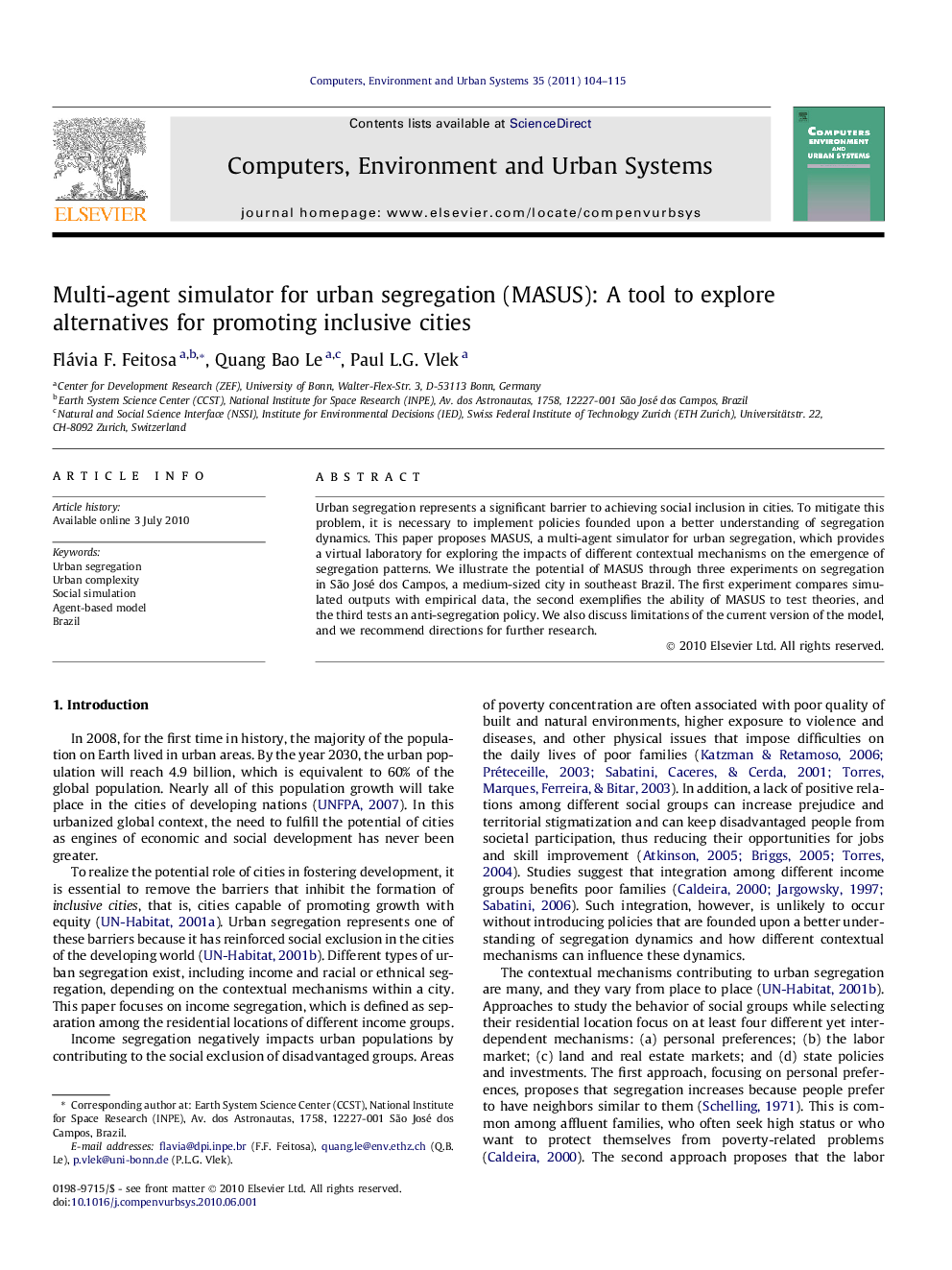| Article ID | Journal | Published Year | Pages | File Type |
|---|---|---|---|---|
| 506656 | Computers, Environment and Urban Systems | 2011 | 12 Pages |
Urban segregation represents a significant barrier to achieving social inclusion in cities. To mitigate this problem, it is necessary to implement policies founded upon a better understanding of segregation dynamics. This paper proposes MASUS, a multi-agent simulator for urban segregation, which provides a virtual laboratory for exploring the impacts of different contextual mechanisms on the emergence of segregation patterns. We illustrate the potential of MASUS through three experiments on segregation in São José dos Campos, a medium-sized city in southeast Brazil. The first experiment compares simulated outputs with empirical data, the second exemplifies the ability of MASUS to test theories, and the third tests an anti-segregation policy. We also discuss limitations of the current version of the model, and we recommend directions for further research.
Research highlights► This research proposes MASUS, a multi-agent simulator of urban segregation. ► MASUS is a virtual laboratory for testing the emergence of segregation patterns. ► MASUS experiments show that income inequality promotes urban segregation. ► Social-mix policies based on poverty dispersion are ineffective in poor countries.
